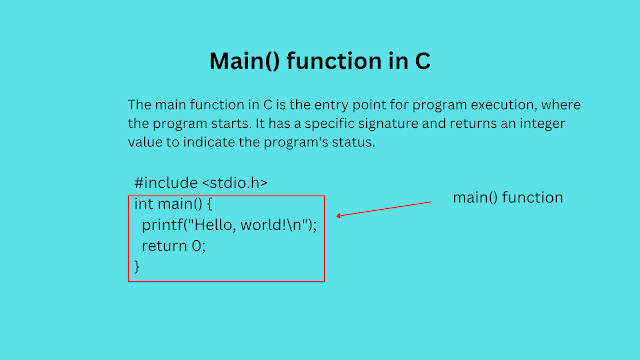What is the main function in C and why is it important?
The main function is a special function in C programming and serves as the entry point for program execution. It is required in every C program and is where the execution of the program begins.
The main function has a specific signature: `int main(void)` or `int main(int argc, char* argv[])`. It returns an integer value (`int`) that indicates the status of the program's execution to the operating system.
Here's a description of the main function components:
- `int`: The return type of the main function. It specifies that the function will return an integer value.
- `main`: The name of the function. It serves as the entry point for the program.
- `void`: In the first signature (`int main(void)`), `void` specifies that the main function does not accept any command-line arguments.
- `int argc, char* argv[]`: In the second signature (`int main(int argc, char* argv[])`), `argc` represents the number of command-line arguments passed to the program, and `argv[]` is an array of strings that contains the actual command-line arguments.
Here's an example of a simple C program with the main function:
#include <stdio.h>int main() { printf("Hello, world!\n"); return 0;}The main function simply prints "Hello, world!" to the console using the `printf` function from the standard input/output library (`stdio.h`). The `return 0;` statement indicates that the program has executed successfully, and the value of 0 is returned to the operating system.

.png)